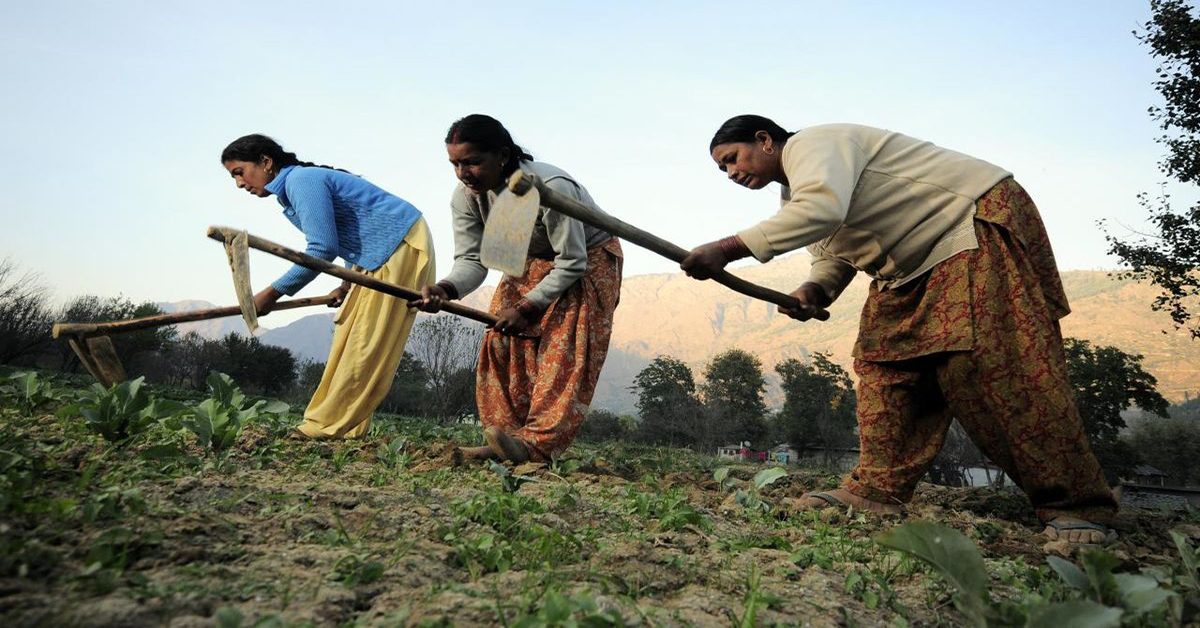


A recent data analysis by the Agriculture Ministry has shed light on the widening gap between the terms of trade (ToT) for farmers and agricultural labourers in India. While crop prices have increased by 111.2% over the past two decades, the cost of inputs for farming has risen by 198.1%, resulting in a decline in the ToT for farmers. This has led to a situation where agricultural labourers, who receive only wages and not the profits from farming, are faring better than the farmers themselves. The cost squeeze for farmers is mainly due to rising input costs, and they are unable to pass these on in the form of higher prices for their produce.
Terms of Trade: A Broken Promise for Indian Farmers
Introduction The agriculture sector is the backbone of the Indian economy, providing livelihood to over 60% of the population. However, recent trends reveal a widening gap between the terms of trade (ToT) for farmers and agricultural labourers. This disparity has raised concerns about the sustainability of the agriculture sector and the well-being of its participants.
Terms of Trade Disparity ToT measures the ratio of prices received by farmers for their produce to the prices they pay for inputs such as fertilizers, seeds, and machinery. A recent analysis by the Agriculture Ministry shows that over the past two decades, crop prices have increased by 111.2%. However, the cost of inputs has skyrocketed by 198.1%, resulting in a decline in ToT for farmers.
This disparity is primarily driven by rising input costs, particularly fertilizers, which have increased by 282.4% since 2000. The inability of farmers to pass on these increased costs to consumers in the form of higher prices for their produce has led to a cost squeeze.
Impact on Farmers The declining ToT has had a devastating impact on farmers' incomes and livelihoods. Many are forced to sell their produce below cost or take on mounting debts to cover their expenses. The result has been a decline in agricultural investment and a shift towards less profitable crops.
Agricultural Labourers: A Relative Advantage In contrast to farmers, agricultural labourers have witnessed an improvement in their ToT. This is because they receive wages, which are linked to the cost of living, and do not directly bear the burden of input costs. As a result, their purchasing power has increased relative to that of farmers.
Policy Implications The widening ToT gap demands immediate attention from policymakers. Measures are needed to address the rising input costs, such as promoting fertilizer subsidies, providing credit at affordable interest rates, and encouraging the use of innovative agricultural practices.
Additionally, initiatives aimed at improving farmers' market access, reducing post-harvest losses, and increasing value addition can help them realize better prices for their produce.
FAQs
1. What is the reason behind the rising input costs in agriculture? A. Factors such as increasing demand for fertilizers, global supply chain disruptions, and rising energy prices have contributed to the surge in input costs.
2. How has the ToT disparity affected farmers' livelihoods? A. The declining ToT has led to lower incomes, increased debt, and a shift away from profitable crops.
3. What are the benefits of improving market access for farmers? A. Enhanced market access provides farmers with more options to sell their produce, reduces dependence on intermediaries, and potentially leads to higher prices.
4. How can value addition improve farmers' earnings? A. Value addition involves processing or transforming raw agricultural products into more valuable forms, such as packaged foods or processed goods. This process can increase farmers' profits and reduce post-harvest losses.
5. What role can technology play in addressing the ToT gap? A. Technology can enhance farm productivity, reduce input costs, improve market access, and provide farmers with real-time information on crop prices and market trends.

After a roller coaster week, the Indian equity benchmark indices, Sensex and Nifty, opened in the negative territory on Monday due to weak global cues, persistent foreign institutional outflows, and renewed selling pressure. This comes after the Sensex and Nifty ended the previous trading session at 85,267.66 and 26,046.95, respectively. In the early trade, ICICI Bank, Asian Paints, Hindustan Unilever, and Axis Bank were among the top gainers, while Trent, NTPC, Mahindra & Mahindra, Eternal, and Bajaj Finserv were the laggards. The broader indices also opened in the red, with 1,680 stocks in the Nifty pack trading in the green and 936 in the red, while 90 remained unchanged.

Rubics Group has made a major move into Mumbai's high-end real estate market by announcing their bold debut with the sponsorship of Lionel Messi's G.O.A.T. India Tour 2025. The renowned Rubics Group has entered into the market with their new venture, Rubics Realty, which will bring world-class properties to Mumbai. This collaboration with Messi, arguably one of the greatest football players of all time, is expected to bring a whole new level of excitement and luxury to the Indian real estate market.

The Springfield News-Sun, a trusted local news source, offers a variety of tools to help readers stay informed and engaged with their community. The online subscriber portal allows for easy account management, including options to start a delivery hold and view and pay bills. Additionally, dedicated customer service staff are available to help with any questions or issues. Invest in local journalism and stay connected with the Springfield News-Sun.

The renowned Rubics Group is making strides in the luxury real estate market with the launch of their new brand, Rubics Realty, in Mumbai. This move coincides with their sponsorship of the highly anticipated G.O.A.T. India Tour 2025, featuring superstar Lionel Messi. According to Rubics Group's Managing Director Suhan Shetty, this partnership reflects their ambition to redefine premium property markets and offer clients a sophisticated lifestyle upgrade. Fans can look forward to meeting Messi and reliving memorable moments from his legendary career during the tour.

A recent investigation launched by the Securities and Exchange Board of India (SEBI) has sparked concerns for investors of Quant Mutual Fund. The company's significant increase in AUM has caught the attention of authorities, leading to suspicion of front-running practices. If proven, this could result in reduced returns for investors and potential redemptions, highlighting the importance of fair trade practices in the financial industry.

As part of its 2025 impact report, cycling brand Rapha has announced ambitious targets to increase its use of sustainable materials and reduce emissions across its operations and supply chain by 2030. This includes a commitment to using 80% recycled polyester in its garments and offering a trade-in program for its clothing. While cycling may produce few emissions, Rapha's actions aim to address the environmental impact of the entire supply chain in the industry.

BR and Bar & Bench have joined forces to introduce India's pioneering Generative Artificial Intelligence (Gen AI) programme for legal professionals. Renowned economist David Deming highlights the increasing role of AI in routine lawyer tasks, making it essential for lawyers to acquire AI skills for future success. The highly in-demand skills can enhance precision, speed, and strategy for Indian lawyers, with over 25 AI tools at their disposal. With the 3rd batch starting soon, only limited seats are available for this exclusive 3-month programme, including live sessions and access to session recordings. Secure your seat now to stay ahead in the rapidly changing legal world.

Amid struggles in ratings and ad dollars, CBS News' parent corporation, Paramount Global, announced layoffs and programming changes in an effort to cut costs. The changes include the cancellation of two companion programs and the scaling back of a unit focused on race and culture coverage. The company also plans to have weekday producers take over the operations of the Saturday morning broadcast.

In response to the rising demand for air travel, India's aviation regulator DGCA is introducing revised regulations for wet-leasing of aircraft by domestic airlines. The move aims to provide better oversight and facilitate smoother functioning for carriers managing leased fleets. With airlines facing delays in aircraft deliveries due to supply chain challenges, wet-leasing has become a popular option, but the current regulations have limitations. Through consultations with stakeholders, DGCA is making changes to address these limitations and support the growth of the aviation sector.

In 2025, Bonk, Inc. underwent a major transformation, clearing its debt and establishing new, high-margin revenue streams. As a result, the company is projecting 100% year-over-year revenue growth in 2026, with contributions from its digital asset platform, BONK.fun, and profitable beverage division, Yerbaé. Bonk, Inc. also sees potential for exponential growth due to favorable legislation and a clearer regulatory framework, which could unlock institutional demand and increase transaction velocity in the digital asset sector. These factors, along with the company's planned IPO, make for a bright future for Bonk, Inc.